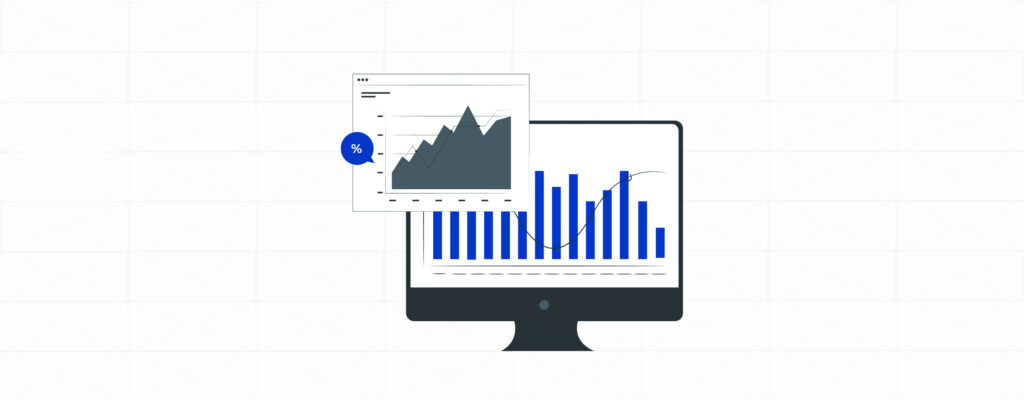Running a successful small business requires meticulous financial management and planning. As a small business owner, it’s crucial to have a solid understanding of your company’s financial health and to make well-informed decisions that can safeguard its future. In this section, we’ll explore essential financial tips that can help you navigate the complexities of small business finance and position your company for long-term growth and sustainability.
Separate Personal and Business Finances
One of the most important financial tips for small businesses is to keep your personal and business finances completely separate. This means maintaining distinct bank accounts, credit cards, and accounting records for your business. Commingling personal and business finances can quickly lead to confusion, make it challenging to track expenses and income, and complicate tax filing and compliance. By maintaining a clear separation, you’ll be able to better understand the financial health of your business, make informed decisions, and ensure accurate record-keeping for tax and reporting purposes.
Create a Detailed Long Term Budget
Developing a comprehensive budget is a crucial step in managing your small business finances. Your budget should include detailed projections for revenue, expenses, and cash flow. Regularly reviewing and updating your budget can help you identify areas where you can cut costs, allocate resources more effectively, and plan for unexpected expenses. By having a clear financial roadmap, you’ll be better equipped to make informed decisions, stay on track with your financial goals, and adapt to changing market conditions.
Monitor and Manage Cash Flow
Maintaining a consistent and positive cash flow is essential for the survival and growth of your small business. Closely monitor your incoming payments and outgoing expenses to ensure that you have sufficient funds to cover your daily operations, pay your employees, and meet your financial obligations. Consider implementing strategies to improve your cash flow, such as offering early payment discounts, invoicing promptly, and negotiating better terms with suppliers. By proactively managing your cash flow, you can avoid cash shortages, late payments, and potential disruptions to your business operations.
Identify and Mitigate Business Financial Risks
Small businesses often face a variety of risks, from economic downturns and natural disasters to changes in regulations and market trends. It’s important to proactively identify and assess the potential risks to your business, and then develop strategies to mitigate them. This may include diversifying your client base, securing appropriate insurance coverage, and maintaining emergency funds. By anticipating and addressing potential risks, you can better protect your business and ensure its long-term viability.
Seek Professional Guidance

As a small business owner, it’s often beneficial to collaborate with financial professionals, such as accountants, financial advisors, and tax specialists. These experts can provide valuable insights, help you navigate complex financial regulations, optimize your tax planning, and ensure that your financial strategies are aligned with your long-term goals. By working with qualified financial professionals, you can make more informed decisions, reduce your risk exposure, and position your business for sustained growth and success.
Invest in Professional Tax Planning Guidance
Running a small business comes with a myriad of responsibilities and complexities. While it may be tempting to handle all aspects of the business’s finances on your own, it is often beneficial to invest in professional guidance. Partnering with a qualified advisor and accountant can provide invaluable support and expertise to help small business owners navigate the financial landscape effectively.
Financial advisors can offer personalized counsel on investment strategies, risk management, and long-term planning. They can help you develop a comprehensive plan to allocate resources, diversify investments, and ensure your business is positioned for sustainable growth. These professionals have the knowledge and experience to identify opportunities and mitigate potential risks, allowing you to make informed decisions and focus on the core operations of your business.
Similarly, working with a skilled accountant can be instrumental in maintaining financial control and compliance. They can assist with tasks such as managing payroll, filing taxes, tracking expenses, and ensuring your business adheres to relevant regulations. By outsourcing these critical financial responsibilities to an expert, you can free up your time and energy to concentrate on driving your business forward.
Investing in professional guidance, whether it’s a financial advisor, accountant, or both, can provide a significant return on investment. These experts can help you optimize your strategies, minimize tax liabilities, and navigate complex financial decisions with confidence. Additionally, their insights and recommendations can help you identify areas for improvement, explore new growth opportunities, and make more informed choices that align with your business objectives.
Separate Personal and Business Finances
Running a small business requires a clear separation of personal and business finances. This distinction is essential for several reasons, including streamlining financial management, reducing tax complications, and limiting personal liability.
One of the primary benefits of separating personal and business finances is the ability to track expenses and income more effectively. When personal and business transactions are commingled, it becomes challenging to accurately assess the financial health of the business. Maintaining separate bank accounts and credit cards for business and personal use allows for easier record-keeping, enabling more informed financial decision-making.
Moreover, the separation of finances is crucial for tax purposes. Mixing personal and business expenses can lead to confusion, making it more difficult to claim legitimate business deductions and accurately report income. By keeping these accounts separate, small business owners can ensure they are complying with tax regulations and avoiding potential legal issues down the line.
Another significant advantage of maintaining distinct personal and business finances is the reduction of personal liability. If personal and business assets are not clearly delineated, there is a risk of the business owner’s personal assets being exposed in the event of legal or financial issues related to the company. Separating the two helps to protect the owner’s personal wealth and safeguard their goals, such as saving for retirement or making major personal purchases.
Create a Comprehensive Financial Plan For Business Owners

Effectively managing a small company requires strategic financial planning for business to ensure long-term stability and growth. A well-structured financial plan enables business owners to assess their company’s health, identify risks and opportunities, and make informed decisions.
A crucial element of this plan is a detailed budget that accounts for both fixed and variable expenses. This budget should include revenue projections, anticipated costs, and cash flow estimates, helping business owners foresee financial challenges and adjust accordingly. By monitoring and categorizing expenditures, they can uncover potential savings and improve operational efficiency.
Another key aspect is sales forecasting, which allows businesses to predict future revenue trends, adapt pricing strategies, and optimize inventory and resource management. Accurate sales estimates provide insights that support better controlling.
Additionally, a comprehensive balance sheet should be included in the financial plan. This document offers a clear overview of the company’s assets, liabilities, and equity, helping business owners evaluate their financial standing and pinpoint areas for improvement or expansion.
Build an Emergency Fund
Building an emergency fund, often referred to as a “rainy day fund,” is crucial for maintaining stability in a small business. This financial buffer ensures that unexpected revenue shortfalls or surprise expenses don’t disrupt operations. Financial experts suggest setting aside approximately six months’ worth of operating expenses to create a solid safety net. This reserve can be invaluable if sales decline suddenly or if essential equipment requires costly repairs. Having these funds readily available helps businesses avoid accumulating debt or making drastic cost-cutting decisions that could jeopardize long-term growth.
Building an emergency fund, often referred to as a “rainy day fund,” is crucial for maintaining financial stability in a small business. This financial buffer ensures that unexpected revenue shortfalls or surprise expenses don’t disrupt operations. Financial experts suggest setting aside approximately six months’ worth of operating expenses to create a solid safety net. This reserve can be invaluable if sales decline suddenly or if essential equipment requires costly repairs. Having these funds readily available helps businesses avoid accumulating debt or making drastic cost-cutting decisions that could jeopardize long-term growth.
Manage Cash Flow Strategies
Maintaining a healthy cash flow is crucial for the success of any small business. Cash flow refers to the movement of money in and out of your business, and it’s the lifeblood of your operations. Regularly monitoring your cash flow using financial statements like the balance sheet, income statement, and cash flow statement can help you identify potential issues early and take proactive measures to address them.
Forecasting your cash flow is also essential. By projecting your future cash inflows and outflows, you can anticipate when you may need to access additional financing or make adjustments to your spending. This allows you to plan ahead and ensure that you have the necessary funds to cover your expenses, such as payroll, rent, and inventory purchases.
Effectively managing your accounts receivable and payable is another key aspect of cash flow management. Encourage your customers to pay their invoices promptly by offering incentives, such as early payment discounts. At the same time, negotiate favorable terms with your suppliers and pay your bills on time to avoid late fees and maintain a good credit standing.
Plan for Taxes For Small Business
Proactive tax planning is essential for small business owners to minimize their tax liability and ensure compliance with regulations. As a business owner, it’s crucial to have a solid understanding of your tax obligations and take measures to manage them effectively.
One of the key strategies for small business tax planning is the establishment of retirement accounts such as a SEP IRA, Solo 401(k), or SIMPLE IRA. These retirement vehicles offer significant tax advantages that can benefit small business owners. By contributing to a SEP IRA or Solo 401(k), you can defer a portion of your income, reducing your current tax burden and allowing your savings to grow tax-deferred. Similarly, a SIMPLE IRA allows small businesses with 100 or fewer employees to set up a retirement plan with simple administration and tax-deferred contributions.
In addition to retirement account planning, small business owners should be aware of other tax-saving strategies. This may include claiming eligible deductions, such as those related to business expenses, equipment purchases, or home office use. Keeping meticulous records and working closely with a qualified accountant or tax professional can help ensure that you maximize your allowable deductions and stay compliant with tax regulations.
Furthermore, it’s essential to plan for estimated tax payments throughout the year, rather than waiting until the last minute to fulfill your tax obligations. Making timely quarterly payments can help you avoid penalties and interest charges, and ensure a smoother flow of cash for your business.
Prepare for the Future
As a small business owner, it’s crucial to think beyond the day-to-day operations and prepare for the future. This involves two key aspects: retirement and succession planning.
Retirement Planning: Small business owners often pour their heart and soul into their company, sometimes neglecting their own well-being. It’s essential to develop a comprehensive retirement plan that will provide you with financial security when you’re ready to step away from the business. This may include contributing to retirement accounts, such as a 401(k) or an IRA, as well as exploring options like annuities or other investment vehicles. By planning ahead, you can ensure a comfortable and fulfilling retirement.
Succession Planning: Equally important is having a clear plan for the eventual transition of your business. This could involve passing the reins to a family member, selling the company to a third party, or implementing an employee ownership structure. Succession financial planning for small business not only secures the long-term future of your business but also helps you maximize the value of your life’s work. It’s never too early to start considering your exit strategies and ensuring a smooth transition.
Implement and Manage the Financial Tax Plan
Once you’ve developed a comprehensive financial plan for your small business, the next critical step is to put it into action and diligently manage your finances throughout the year. Effective implementation and ongoing oversight of your financial plan are essential for ensuring your business remains financially healthy and on track to achieve its goals.
One of the most important aspects of managing your financial plan is tracking your actual performance against the projections in your plan. This involves closely monitoring your income, expenses, cash flow, and other key financial metrics on a regular basis, such as monthly or quarterly. By comparing your actual results to your planned targets, you can quickly identify any variances or deviations and take corrective action as needed.
As you track your performance, you may find that certain assumptions or estimates in your original financial plan were inaccurate or that unexpected events have impacted your finances. When this occurs, it’s important to make timely adjustments to your plan to reflect the new realities. This could involve revising your sales forecasts, modifying your expense budgets, or altering your investment or financing strategies. The ability to be nimble and responsive to changes is crucial for effective financial management.
In addition to making adjustments throughout the year, it’s also essential to conduct a comprehensive review and assessment of your financial plan at the end of each year. Analyze how closely your actual results align with your original plan, and identify the key factors that contributed to any significant variances. This evaluation will help you understand the accuracy of your planning process and uncover areas where you can improve your forecasting, budgeting, and overall financial management for the coming year.
Key Takeaways for Small Business Financial Management

Managing a small business effectively requires strategic financial oversight to maintain long-term stability and growth. Given their often limited resources and narrower profit margins compared to large corporations, small businesses must adopt sound financial practices. Below are key strategies that business owners should prioritize:
Create a detailed budget that outlines all projected income and expenses. Keeping a close eye on cash flow ensures that operational costs, debts, and business investments are consistently covered. Regularly revisiting and adjusting the budget allows businesses to stay adaptable to shifting market conditions.
Establish a financial roadmap that aligns with your company’s vision and objectives. Identify potential risks such as unforeseen expenses, economic fluctuations, or regulatory changes. Implement strategies to minimize these risks by diversifying revenue streams, securing proper insurance, and maintaining financial reserves. Stay informed about tax regulations and prepare accordingly. Collaborate with a professional accountant to maximize deductions and credits while ensuring full compliance with tax laws. Proper tax planning can prevent costly penalties and optimize financial efficiency.
If transitioning ownership is in your future plans – whether through selling the business or passing it on to family – start preparing early. A well-structured succession plan should address leadership changes and financial transitions to ensure a seamless handover. By incorporating these financial management strategies, small business owners can enhance financial resilience, minimize uncertainties, and pave the way for sustained success. A proactive and well-structured approach is fundamental to business longevity.








